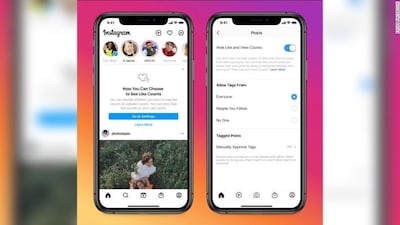Facebook and Instagram are now giving all users the option to hide "likes" on their posts.
The move will shake up one of the core dynamics of the social media platforms, where the number of likes has, in the past, been used as a measure of influence and popularity.
Since 2019, Instagram has been trialling a hidden like count for selected users, which allowed only the profile owner to see the total number of likes a post had received. Their followers could only see if any mutual profiles had liked the post.
That update was trialled in a number of countries, including Australia and Canada, and was introduced as a result of mounting criticism over the negative effects of social media on the well-being and mental health of users.
However, as of Wednesday, all users will be given the option to choose whether to allow their counts to be visible to the public, as well as whether they want to view the like count on profiles they follow.
Announcing the news in a blog post on Wednesday, Facebook said: “What we heard from people and experts was that not seeing like counts was beneficial for some and annoying to others, particularly because people use like counts to get a sense of what's trending or popular, so we're giving you the choice."
How does it work?
If users opt to hide their number of likes, viewers will still be able to see a list of who liked the post, but the total count will not be displayed. Facebook said the update will allow users to "focus on the photos and videos being shared, instead of how many likes posts get".
Users will also have the option to hide likes on a per-post basis, meaning it does not have to be a blanket setting to hide the like count on all posts.
In order to update your settings, go to the post section in the settings tab, and select "hide like" and "view count".
Facebook said it is funding "external research about people's experiences on Instagram, and how we can improve our policies and products to support our community". It added that it is accepting proposals from academics and non-profits for such studies.



